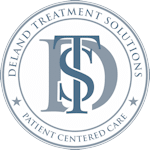Written by DeLand Treatment Solutions
September 15, 2023
Types of Addiction: The Silent Epidemic
Addiction is a complex and pervasive issue that affects millions of people worldwide. While most commonly associated with substances like drugs and alcohol, addiction can manifest in various forms, impacting physical and psychological well-being. In this comprehensive guide, we will explore the nine types of addiction, shedding light on the multiple ways individuals can struggle with addictive behaviors.

Types of Addictions
No matter what type of addiction someone is struggling with, there is help available. Addiction treatment centers offer a variety of programs and services that can help people overcome their addiction and reclaim their lives.
Substance Addiction
Substance addiction is perhaps the most widely recognized form of addiction. It encompasses the dependence on substances such as alcohol, tobacco, prescription drugs, and illegal drugs. People who suffer from substance addiction often experience physical and psychological cravings, withdrawal symptoms, and an inability to control their consumption, leading to severe consequences for their health and personal lives.
Types Substance Addiction
Substance addiction, often referred to as substance use disorder (SUD), is a chronic, relapsing condition characterized by compulsive drug seeking and use, despite harmful consequences. It affects the brain’s reward system, making quitting difficult and leading to intense cravings. Common substances associated with addiction include:
Alcohol Addiction
Alcohol addiction, or alcoholism, is a specific form of substance addiction characterized by a physical and psychological dependence on alcohol. It can result in health problems, impaired judgment, and strained relationships.
Drug Addiction
Drug addiction includes using illicit drugs, prescription drugs, or over-the-counter medications in a way that leads to dependence and negative consequences. Commonly abused drugs include opioids, stimulants, sedatives, and hallucinogens.
Nicotine Addiction
Nicotine addiction is primarily associated with tobacco products, such as cigarettes and chewing tobacco. It is one of the most challenging addictions due to nicotine’s highly addictive nature.
Behavioral Addiction
Behavioral addiction, sometimes called process addiction, involves compulsive engagement in specific behaviors that lead to negative consequences. Common behavioral addictions include:
Gambling Addiction
ls with gambling addiction experience a compulsion to gamble despite the detrimental effects on their finances, relationships, and overall well-being.
Internet and Technology Addiction
This type of addiction involves an obsession with online activities, such as excessive gaming, social media usage, or pornography consumption, which interferes with daily life.
Shopping Addiction
People suffering from shopping addiction have an uncontrollable urge to shop, often accumulating debt and hoarding items they don’t need.
Work Addiction (Workaholism)
Work addiction manifests as an unhealthy obsession with work, leading to neglect of personal relationships and physical and mental health.
Food Addiction
Food addiction involves the uncontrollable consumption of specific foods, often high in sugar, fat, and salt. Individuals with this addiction may eat compulsively, experience guilt and shame, and struggle with weight management, which can lead to obesity and related health issues.
Food addiction can lead to obesity and related health issues, including diabetes, heart disease, and high blood pressure. The guilt and shame associated with compulsive overeating can also profoundly impact mental health.
Sex Addiction
Sex addiction, also known as hypersexuality or compulsive sexual behavior, involves engaging in excessive and risky sexual activities, often to the detriment of one’s relationships and emotional well-being.
It is a controversial and debated concept in the field of addiction. Compulsive sexual thoughts characterize it and act that becomes a central focus of a person’s life. Key aspects of sex addiction include:
Cycle of Behavior
Sex addiction often follows a cycle similar to substance addiction, which includes preoccupation, ritualization, and sexual behavior. Afterward, individuals may experience a sense of relief, followed by guilt or shame.
Impact on Relationships
Sex addiction can severely impact relationships, leading to infidelity, secrecy, and a lack of emotional intimacy. Partners of individuals with sex addiction may experience significant emotional distress.
Co-occurring Disorders
Many individuals with sex addiction also struggle with other mental health issues, such as depression, anxiety, or substance abuse.
Exercise Addiction
Exercise addiction, or compulsive exercise, occurs when individuals become obsessed with working out, sometimes to the point of physical harm. They may feel anxious or guilty if they miss a workout and prioritize exercise over other aspects of life.
Exercise addiction often starts with a healthy desire to stay fit and active but can escalate into an obsession. Critical aspects of exercise addiction include:
Compulsive Exercise
Individuals with exercise addiction engage in exercise compulsively, often exceeding recommended limits and ignoring physical signs of overtraining, such as injuries and fatigue.
Psychological Factors
Perfectionism, body image issues, and a drive for control are common psychological factors associated with exercise addiction.
Health Consequences
Exercise addiction can lead to physical injuries, overtraining syndrome, and imbalances in other areas of life, such as relationships and work.
Prescription Medication Addiction
Prescription medication addiction involves misusing or abusing prescription drugs, even when they are not medically necessary. Opioid painkillers, benzodiazepines, and stimulants are commonly abused prescription medications.
Prescription medication addiction is a growing concern, with legal and illegal access routes to these drugs. Key aspects of prescription medication addiction include:
Painkiller Addiction
Opioid painkillers, such as oxycodone and hydrocodone, are highly addictive and are frequently misused, leading to addiction.
Benzodiazepine Addiction
Benzodiazepines, such as Xanax and Valium, are prescribed for anxiety and can lead to dependence when used beyond recommended doses.
Stimulant Abuse
Stimulant medications, often prescribed for attention deficit hyperactivity disorder (ADHD), are sometimes abused for their euphoric effects.
Video Game Addiction
Video game addiction, also known as gaming disorder, is characterized by an excessive and compulsive use of video games, often to the detriment of other life responsibilities and activities.
Are you struggling with addiction? You’re not alone.
Addiction is a serious problem that can affect anyone, regardless of age, gender, or background. There are many different types of addictions, including substance abuse, gambling, and eating disorders.
If you are struggling with addiction, it is important to know that there is help available. Many treatment options are available, including individual therapy, group therapy, and medication management.
This article will discuss the different types of addictions, their causes, symptoms, and treatments. By understanding addiction, you can take steps to get the help you need.
If you are struggling with addiction, please don’t hesitate to reach out to DeLand Treatment Solutions for help. There are many resources available to you. Never hesitate to reach out for help. The first step to get rid of addiction is communication.
- Your doctor or health insurance provider
- Local addiction treatment centers
- National organizations like the Substance Abuse and Mental Health Services Administration (SAMHSA)
DeLand Treatment Solutions offers substance addiction treatment programs in Deland.
Call us today at (386) 866-8689 so that our experienced addiction treatment staff can help you get rid of substance addictions.




 info@shc.health
info@shc.health 



